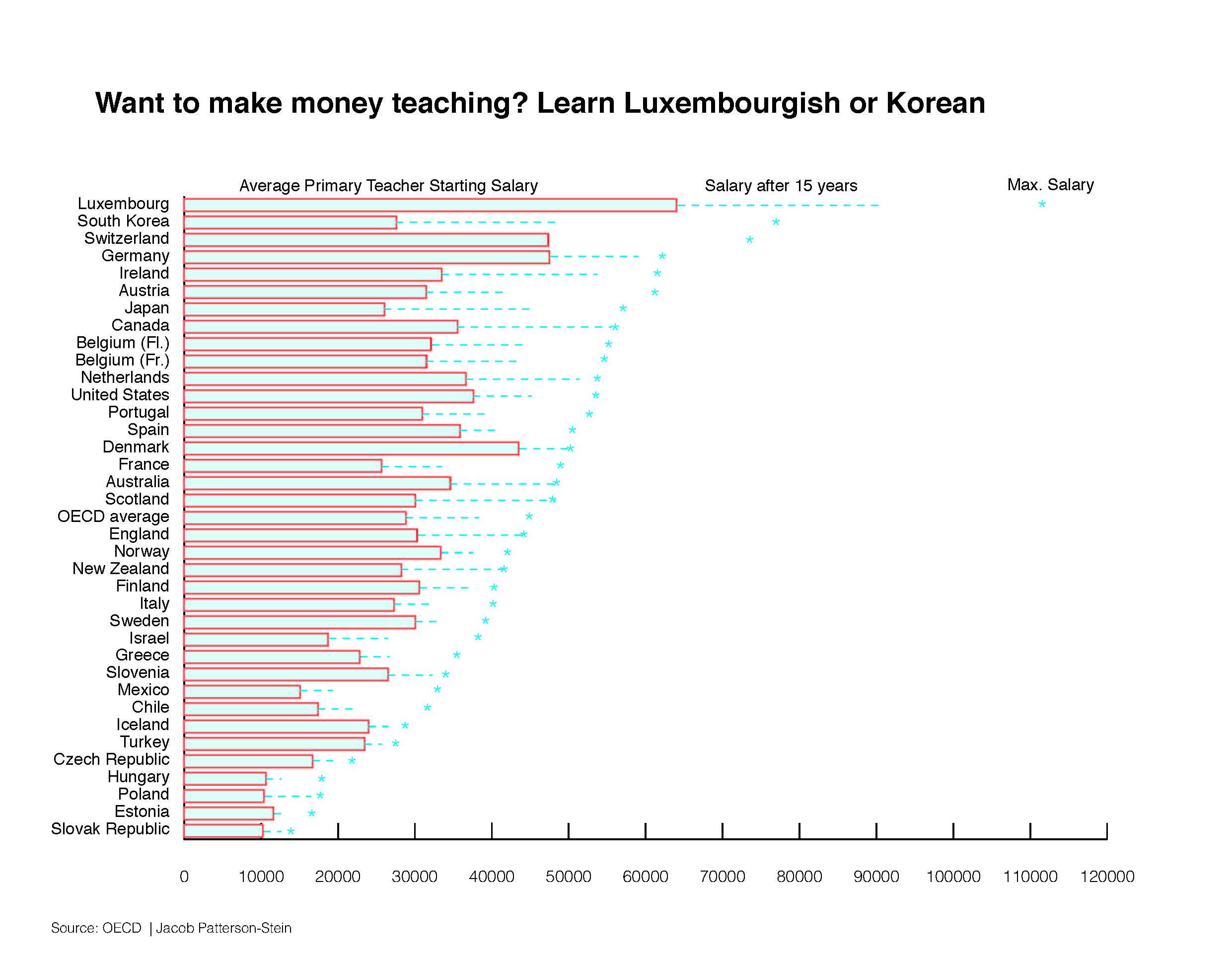Counties in South Carolina, Tennessee, and Florida are debating how much, or even whether, to increase educator salaries. Proponents note that the profession’s reputation for long-hours and low-pay, under increasingly demanding conditions, keeps some of the best and brightest college students from considering a career in education. Others counter with the growing strains on local and state budgets, lack of definitive evidence linking pay to performance, and the fact that in many places teachers actually do relatively well for themselves.
Data on teacher pay across the OECD show that countries that generally score highest on international tests are not necessarily rewarding their educators with top salaries. The following graph presents the average starting salary for a primary public school teacher with minimum training required to teach in a public school, salary after 15 years on the job with the same level of training, and the top of the salary scale for a minimally trained public primary school teacher across the OECD. All values are in US dollars (purchase power parity), and taken from 2011 or the most recent year available.
Notably, Finland, Norway, and Sweden–countries that seem to lead the world in every quality of life indicator– are below the OECD average for max teacher pay, yet scored in the top tier on recent international tests. Of course, the cost of living in each country, what constitutes minimal training, the salary boost from obtaining additional training, such as a master’s degree, and the career benefits provided differ across countries, so simply looking at salaries is not enough to determine that the United States isn’t doing so badly compared to its rich, educated OECD peers. For example, the rigorous standards applied in Finland’s teacher recruitment look nothing like the highly corrupt Mexican system. Although the Obama Administration’s recent rhetoric on education has focused on improving teacher preparation, its 2013 RESPECT proposal, a five billion dollar program that aims to reform the education profession, puts a heavy emphasis on improving compensation. What this graph suggests, however, is that simply increasing teacher pay is not going to make schools in Houston as good as those in Helsinki.
Jacob Patterson-Stein is a second year Master of International Development Policy student. Prior to attending McCourt, Jacob worked for Thomson Reuters in Washington D.C., the More than Me Foundation in Liberia, and in a rural public school in South Korea. He spent summer 2013 working for the Support for Economic Analysis Development in Indonesia (SEADI) project in Jakarta.

